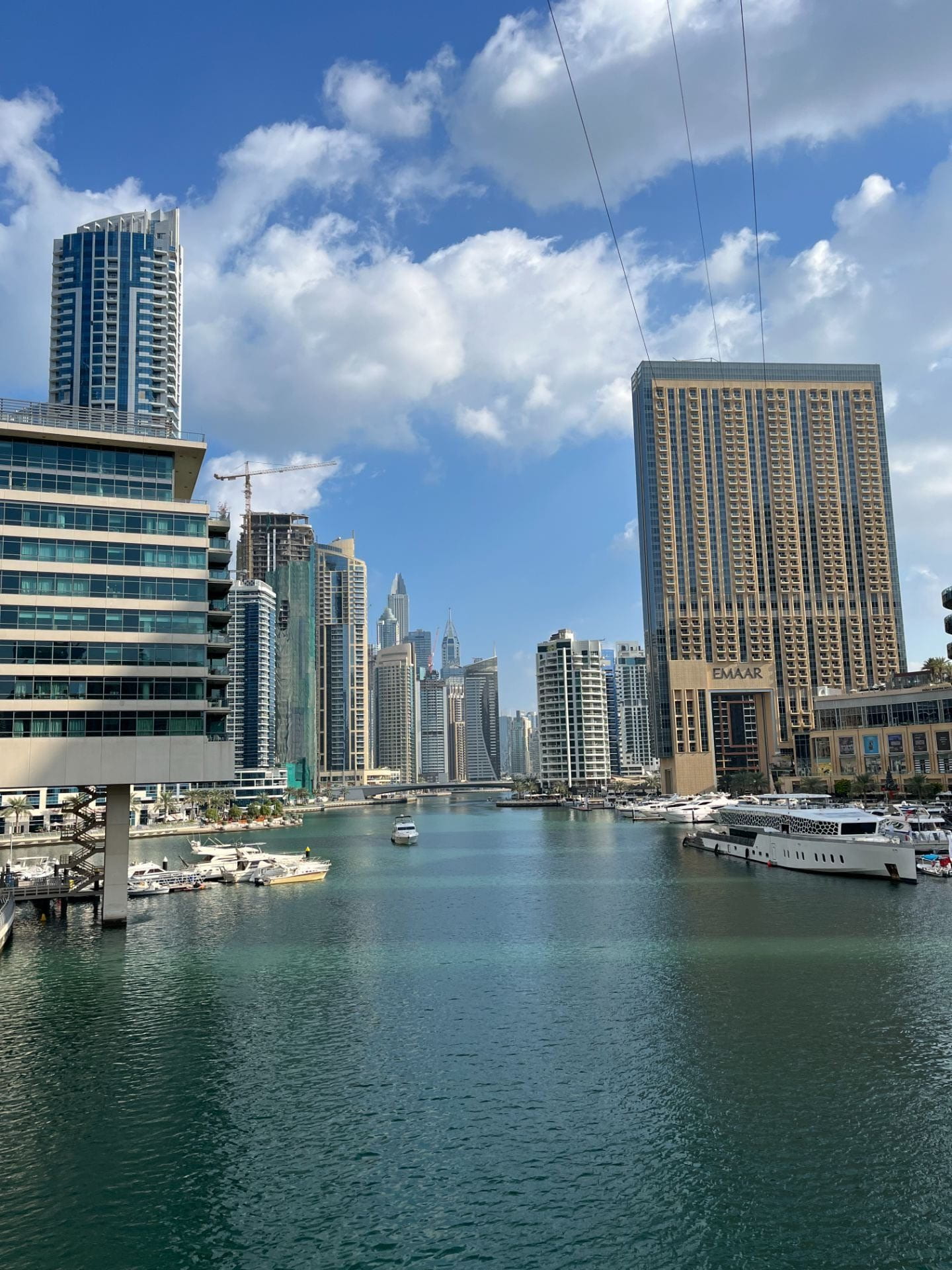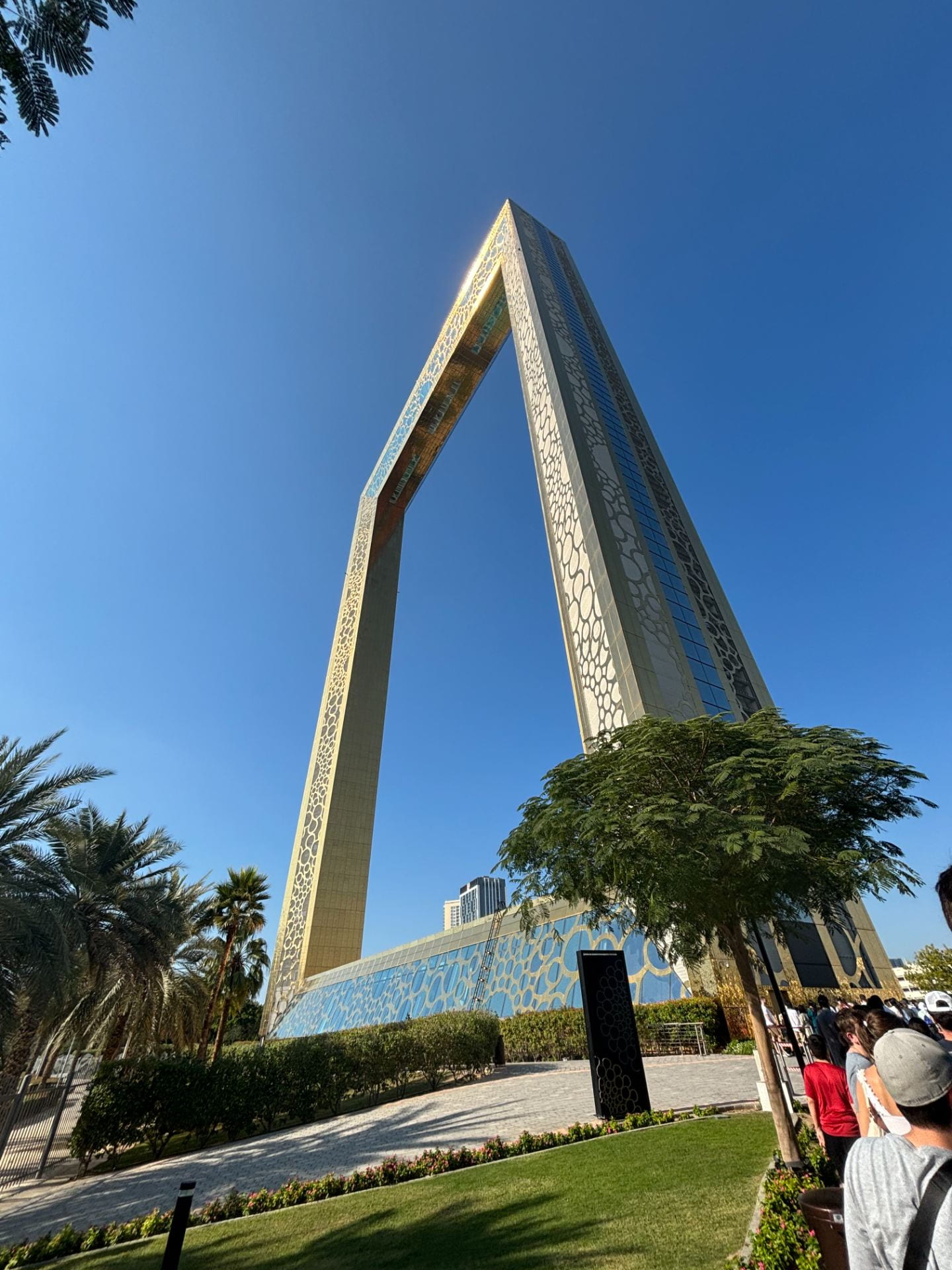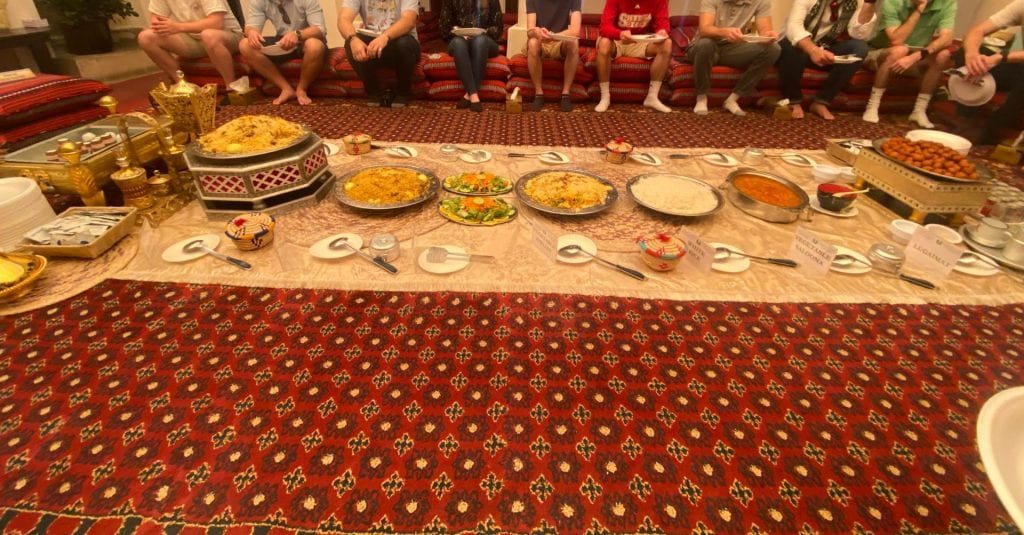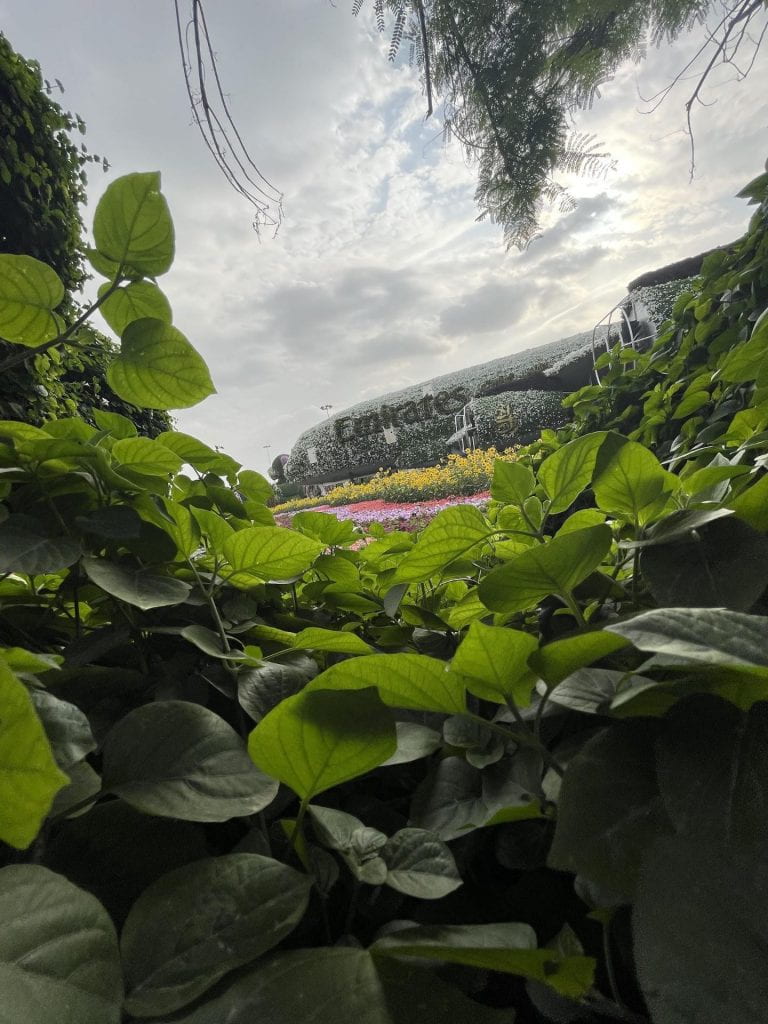Submitted by Ryan Kahn on the 2024 Winter CIEG program in Dubai…
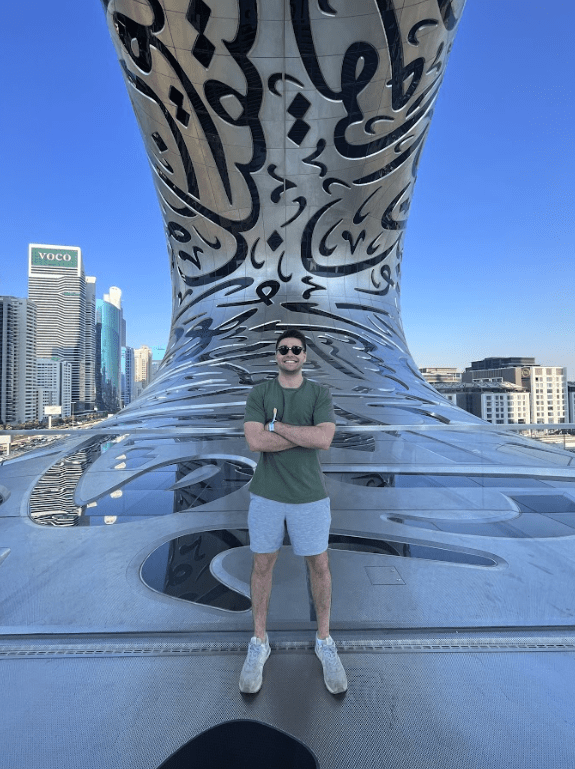
Week 2 in Dubai was just as packed as the first week. We started the second week by heading into old Dubai. While in old Dubai we went to eat lunch at the Sheikh Mohammed Center for Cultural Understanding. This was a traditional Arabic meal and it was amazing, we learned about local customs and cultures while at the center, it was an incredible experience. It was also really cool seeing the old building of Dubai with the new and modern city skyline in the background. While in the old city, we went to all the different Souks in the area (open markets). We mainly explored the Gold, Spice, and Clothing Souks.
Another big excursion this week was going to Museum of the Future. This was one of the most spectacular places I have ever been to. The building looks like it is not from Earth, it is so beyond futuristic and it really hard to even wrap your brain around. The museum inside is fascinating, as it talks about Dubai’s vision 50 years in the future. It was an impressive experience that I highly recommend for everyone to go to if you come to Dubai.
Overall, this week was amazing. Besides the two excursions I mentioned above, we continued to explore the city both during the day and at night. We continued to bond with each other and of course, we got nice and tan on the beach! I can not believe we have been here for almost 2 weeks and I can not wait for what the final 3 weeks have in store! (Submitted on January 14, 2024)

